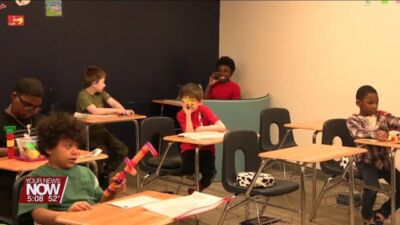LIMA, OH (WLIO) – Yesterday we heard about what makes people with autism unique, today we learn what it takes to help children with autism learn at school. Bethany Ulrick has more.
Experts say the first window to recognize the signs of autism is the first three years of a child’s life. If a child is taking longer than usual to meet developmental milestones, like crawling or speaking, it’s recommended to get them tested. As they grow up, they may be lagging behind in more areas compared to their peers.
milestones, like crawling or speaking, it’s recommended to get them tested. As they grow up, they may be lagging behind in more areas compared to their peers.
“The three big deficits that you’re going to see in autism are the deficits in communication, deficits in social and emotional skills, and then deficits or they might show some repetitive behaviors, so you might see some flapping or some repeating of different sentences, but those are the three big areas that you’re going to see deficits in,” explained Lauren Hattery, board-certified behavior analyst at High Road School of Lima.
Many schools, private and public, offer individualized education plans, or IEPs to children with autism or other developmental disabilities. These plans offer students accommodations based on their specific challenges and needs, and each IEP is carefully tailored to best help them succeed.
“They’re all so different. Each student is different from another and while a lot of things work for a number of students together it won’t necessarily work for all students with autism,” stated Karis Thines, program director at High Road School of Lima.
In the classroom, there are several methods teachers can use to help get their lessons through to autistic students more effectively.
“A lot of visuals are helpful, being able to give breaks and sensory output is helpful, it might be being able to read something to them if they struggle with reading. But just kind of making those different accommodations to help how their brain learn, so it’s really about figuring out how they learn,” said Hattery.
Diagnosing autism at an early age and making the necessary adjustments to the child’s education can often make a huge difference in their development, but most important is accepting them for who they are.
“We can always remediate the deficits of autism, but autism is part of them forever. As far as knowing what to do if when you encounter somebody, just be kind, be patient. You never know what somebody’s struggling with,” added Hattery.
